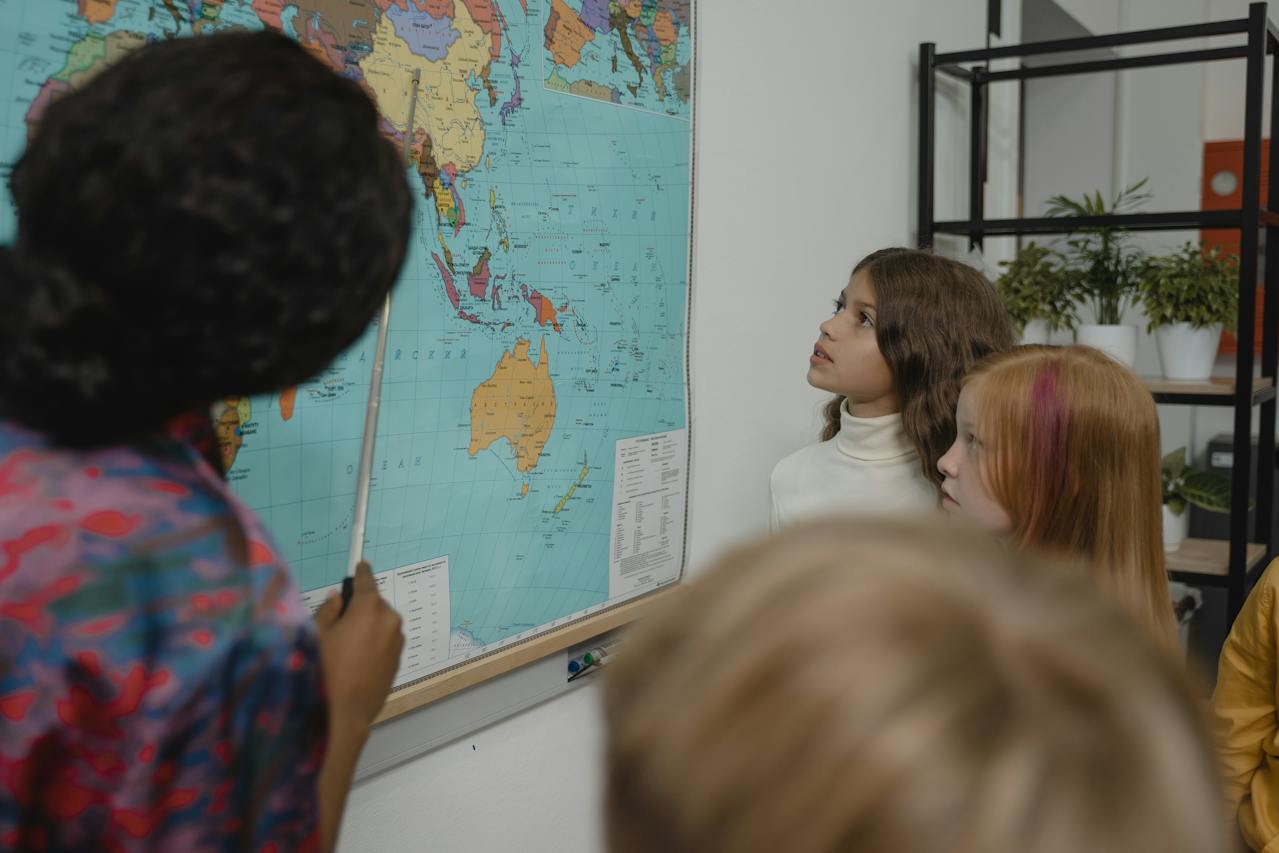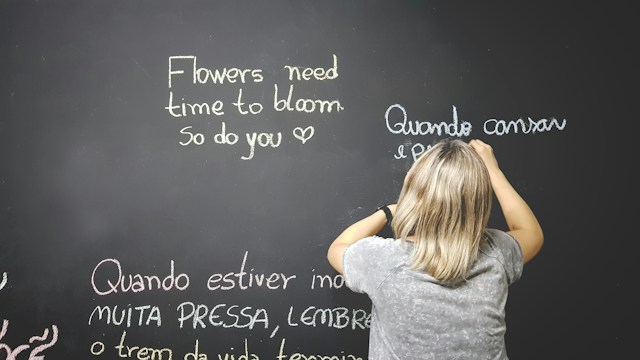Learning a new language is like going on an exciting adventure. It helps you understand different cultures, makes your brain sharper, and lets you connect with people worldwide.
The Foundations of New Language Learning
Learning a language is like opening the door to a whole new world of possibilities. Imagine it as taking the first steps into a vibrant and exciting realm. For beginners, the key is to start by getting to know the basics, laying the groundwork for your journey into this fascinating new universe of communication.
Embrace the Right Mindset
Starting the language journey begins with having a positive attitude. Remember, learning a language takes time, and every little success is a move in the right direction.
Stay curious about the language, noticing the little details that make it unique, and exploring the cultural aspects it reveals. Embrace the process, and you’ll find joy in each step of your language adventure.
Set realistic goals.
Set clear, doable goals for your language journey. Decide if you want to chat casually, travel confidently, or connect with a community. Having clear goals will help you know where you’re headed.
Break big goals into smaller tasks so you can make steady progress without feeling overwhelmed. It’s like creating a roadmap for your language adventure!
Select Your First Language
Picking the perfect language is key to your language journey. Think about things like how many people speak it, the materials you can use, and what you like.
Start with a language that genuinely interests you, and the learning part becomes more fun. It’s all about making the right choice that fits your goals and gets you excited to learn!
Immersion and Practical Language Learning
To speed up your learning, make the language a regular part of your day. Surround yourself with it—listen, speak, and read in the language.
The more you immerse yourself, the more natural it becomes. It’s like making the language a friendly companion in your daily activities, making learning feel like second nature.
Surround Yourself with the Language
Make the language a part of your daily life for better learning. Adjust your phone or computer settings, follow social media accounts in your language, and listen to music or podcasts. Create an environment where the language is always around you.
The more you do this, the more comfortable and familiar the language will become, making your learning experience smoother and more enjoyable. It’s like having the language as a friendly companion in everything you do!
Engage with Native Speakers
Get hands-on practice—it’s super important! Talk to native speakers using language exchange programmes, online platforms, or local meetups.
Chatting with them helps improve how you speak, understand, and get the hang of the culture. It’s like having real conversations that boost your language skills and make learning more enjoyable!
Utilise Language Learning Apps
Use beginner-friendly language apps like Duolingo, Babbel, or Rosetta Stone. They have fun lessons, quizzes, and exercises to help you learn words and grammar.
Using these apps regularly adds a boost to your overall learning plan. It’s like having handy tools to make learning the language easy and enjoyable!

Building a Strong Linguistic Foundation
Learn the basics of grammar, vocabulary, and pronunciation to talk better. Knowing these essentials helps you communicate well. It’s like building the ABCs for speaking the language effectively.
Grammar Essentials
Know the basics of the grammar of your chosen language. Begin with stuff like how sentences work, changing verbs, and everyday phrases.
Grammar is like the backbone of good communication, creating a strong base for your language skills.
Expand Your Vocabulary
Keep adding new words and phrases to your learning routine. Use flashcards, and vocabulary apps, or jot them down in a language journal.
Connecting words to pictures or personal experiences helps you remember them better, making it simpler to use them in everyday situations. It’s like building your language toolkit!
Focus on Pronunciation
Listen carefully to how words sound right from the start. Try language apps with audio, talk with native speakers, and copy how they pronounce things.
Getting your pronunciation right helps you communicate better and boosts your confidence in expressing yourself. It’s like tuning your language skills for clear and confident communication.
Consistency and Overcoming Challenges
Stick with your language learning journey and handle challenges along the way. Keep going, and you’ll get better! It’s like staying on course and overcoming bumps in the road.
Establish a Consistent Routine
Be consistent! Set aside a little time every day for language learning, even if it’s just a few minutes. Doing it regularly helps you understand better and keeps the language from being something you only do now and then. It’s like building a steady rhythm for your learning journey.
Overcoming Plateaus
If you feel stuck in your language learning, don’t worry—it happens! Just keep going. Find where you’re struggling, try different ways to learn, and get extra help if you need it.
Joining language learning groups or asking experienced learners for advice can give you helpful study tips. Remember, sticking with it is the key!
Celebrate Milestones
Acknowledge and celebrate your achievements along the way. Whether it’s grasping a tough grammar rule, chatting away, or exploring a new place, every little win shows you’re making progress. Celebrating these moments keeps you motivated and excited about learning more.

Explore Cultural Context and Advanced Learning
Boost your language skills by digging into the culture and using advanced learning techniques.
Explore Cultural Resources
Explore the connection between language and culture. Start to look into the books, movies, and traditions of the language you’re learning. It not only improves your language skills but also deepens your appreciation for them.
Advanced Learning Strategies
As you get better, try advanced ways of learning. Read challenging stuff, talk to advanced speakers, and learn words related to your interests or job. Change how you learn based on your goals.
Travel and Practical Application
If you can, go where they speak the language. Being in a country where the language is used helps you practice and understand the culture. Talking to locals, doing daily stuff, and being in real-life situations speed up how well you learn the language.

A Lifelong Journey of Multilingualism
Learning many languages is a lifelong adventure full of richness. It’s not just about gaining a new skill; it’s about embracing differences, making connections, and seeing the world in new ways.
Remember, every step you take in this language adventure brings you closer to lots of exciting possibilities. Enjoy your journey of learning languages with curiosity, persistence, and the joy of discovering new worlds through words!
